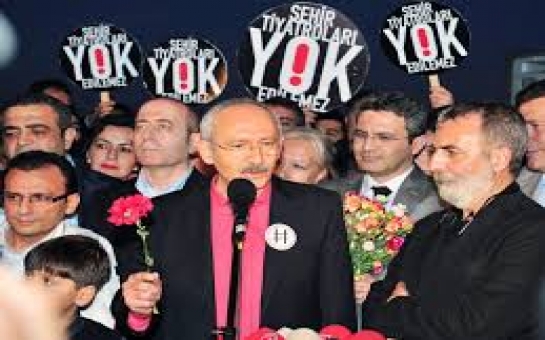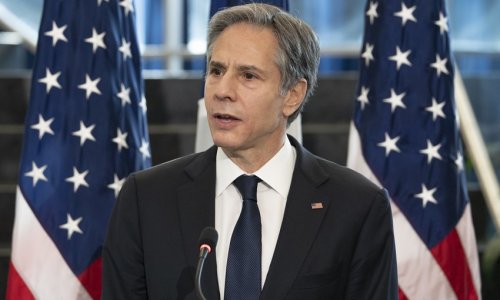“Especially after the [2013] Gezi protests, I can say there is [a] tendency” by Turkey’s Ministry of Culture and Tourism to try and control the content of Turkish–made films, argued Yamaç Okur, the film industry’s representative on the ministry’s Classification and Evaluation Upper Committee, which oversees film-ratings. “It is very related to politics; sometimes with the subject, whether the content is sexual or religious, and sometimes who directed it or produced it.” Ratings that restrict films to adult audiences only have become a key tool in this campaign, filmmakers say. Unlike in the United States or European Union, Turkey’s 18-years-old-and-over rating is normally reserved for the most extreme sexual or violent content. It is invariably the commercial kiss of death for most films, as few Turkish cinemas screen them. In April, the controversy over classifications became headline news when the satirical film “Let’s Sin” by established director Onur Ünlü, a passionate supporter of the Gezi protests, received the 18-plus rating. The film, about an irreverent imam who goes to extreme lengths to solve a murder, had scooped a series of domestic awards and plaudits. The film industry erupted in outrage over the classification, and what little independent media still exists in Turkey ridiculed the decision. Under pressure, the Ministry of Culture backed down and re-classified the film as suitable for viewers 13 years old and above. Ünlü’s victory could well prove hollow for filmmakers, however. That’s because the culture ministry decreed in April that any film that receives an adult-only rating must return its state funding. The ministry is all but the only domestic financier of non-commercial films, pointed out producer-scriptwriter Emine Yıldırım. In 2013, the government supplied roughly 4.38 million Euros (just under $5.64 million) for features and documentaries; that number approximately doubled in 2014 to commemorate the 100th anniversary of Turkish cinema. Yıldırım believes that the implicit threat of an 18-plus rating now pushes Turkish filmmakers and screenwriters toward self-censorship. “From now on, always at the back of my mind [is the question] ‘Will this upset the culture ministry?’” she recounted. “There was always talk about the ministry wanting to support, for example, family films, films for children or films about heroism. It just seems like if you don't completely support the mentality of the ruling party, it is not going to be . . . easy to do anything in this country anymore; not only films.” The ministry, which has not released information about the number of state grants revoked since its April decree, declined to comment. Okur said the Turkish film industry is now lobbying “politicians and ministers” to pass new laws on cinema and ratings “that will solve the problem.” The current cinema law stipulates that “all films should be classified,” yet does not specify the conditions, he explained. But Okur does not expect any reform before Turkey’s general election, slotted for June 2015. Given the government’s crackdowns in other areas of freedom of expression, such as media, AKP members have little personal political incentive to stick their necks out. Ironically, though, under the nearly 12-year rule of the AK Party, Turkish film has boomed. After the moribund 1990s, when the military still held sway over Turkey, the industry reportedly now ranks as among the most productive in Europe, with cinemas regularly showing more Turkish than Hollywood movies. This year, Turkish director Nuri Bilgi Ceylan was awarded the Cannes Film Festival’s Palme d’Or. Earlier this month at the Venice Film Festival, Kaan Mujdeci picked up the Special Jury Prize with his first feature, “Sivas.” But Kurdish director Huseyin Karabey, among the most prominent of those filmmakers who emerged as the military’s political influence dwindled, is pessimistic about the future. “In the early years, the AK Party appeared committed to democracy, in arts as well as politics, but that has now changed,” Karabey commented. His early political films, dealing with issues concerning the country’s large ethnic Kurdish minority, enjoyed state support, reflecting the AKP’s then political agenda of pushing a pro-democracy agenda and facing down the country’s generals. Today, Karabey’s films not only fail to secure state funding, but even struggle to be screened at festivals. Now, faced by what he terms a “way to put censorship during the making of movies,” Karabey says he may opt for “micro-movies, with a very small budget” and distribution online. “[E]ven though you make your own movie, there is no way to show [it] in this country freely, maybe only by broadcasting on the Internet.” The government dismisses such claims, but while President Recep Tayyip Erdoğan is promising a new Turkey, the question increasingly whispered among filmmakers and film audiences alike is what kind of Turkey it will be.(eurasianet.org)Bakudaily.Az
Turkish cinema under political pressure
World
20:30 | 23.09.2014

Turkish cinema under political pressure
From Cannes to Venice, Turkish filmmakers this year have been raking in awards at international film festivals. But back home, a series of government decisions to restrict the viewership of films containing content at odds with positions held by the ruling Justice and Development Party (AKP) has set off alarm bells about censorship.
Follow us !










